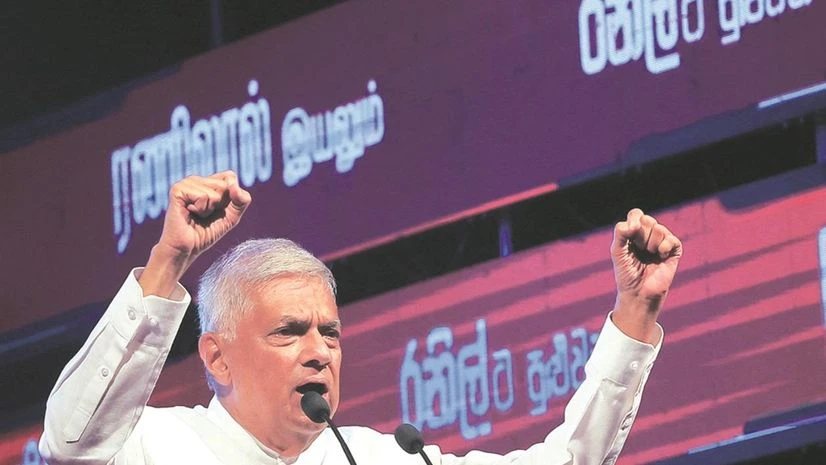[
]
)
Sri Lanka’s President Ranil Wickremesinghe during his final rally for the presidential election
As Sri Lanka awaits the official verdict of its presidential election — and experts are divided on the outcome — there is one fact on which they are unanimous on both shores of the Indian Ocean: That this was the first election in the country in decades which did not see India as a factor in the domestic politics of the island.
Pakiasothy Saravanamuttu, executive director at the Colombo-based Centre for Policy Alternatives, a think tank, has a more nuanced reading of the situation.
“India has been a feature in the election campaign. But I would not say it has been a factor,” he told Business Standard on the phone from Colombo.
Yash Sinha, former Indian high commissioner to Colombo, agrees.
“For Sri Lankans, this election is a way of overcoming the trauma of the economic hardship they have just been through, a way of speaking out. … India is not a factor.”
For voters this time, economic reconstruction has taken priority. India has investment in the Trincomalee Harbour and its expansion, Kankesanthurai Harbour, Sampur solar power, the Three Islands energy project (snatched from China), an oil pipeline from Nagapattinam to Trincomalee, wind power projects in Mannar and Pooneryn, and the finalisation of the Comprehensive Economic and Technical Agreement. The Chinese ambassador voiced rare, public criticism of Sri Lanka for suspending the Three Islands project for “unknown reasons”. But these projects have hardly figured in the campaign of the presidential hopefuls, except a recent television interview, where a front-runner presidential candidate, Anura Dissanayake, was forthright about Indian private-sector firms in Sri Lanka and the opacity in the negotiations of the per unit energy price sold to Sri Lankans by these firms, and vowed to review this.
Sinha said it was unlikely this would go far. “India was the first responder with medicines and equipment during Covid and stepped in with aid amounting to $3.9 million after the economic collapse. But there is a growing realisation in Colombo that government-to-government funding from India to Sri Lanka cannot be endless. The private sector is being encouraged to invest in Sri Lanka — with the proviso that if private-sector projects are caught in a political tug of war, investors will just get up and leave. After the recent economic trauma Sri Lanka has gone through, no one wants that.”
Saravanamuttu said the rights of Tamil minorities in the north and east continued to be an important element in politics — but the context is different. “The resuscitation of the Liberation Tigers of Tamil Eelam or another body like it is no longer possible. But issues of human rights, those who ‘disappeared’ during the war and transitional justice, truth and reconciliation were important issues during the election campaign. It is these rather than the Eelam which are in the forefront.”
Several Indian commentators have noted that with the inroads the Bharatiya Janata party (BJP) has made in Tamil Nadu, the priorities of Dravidian parties have changed and are much more focused on domestic politics.
Journalist and analyst Rathindra Kuruwita is of the view India still has strategic stakes in the presidential election and whom it throws up. But Sinha said the provincial council or state-level elections, which will be held after the presidential polls, would have to be watched.
First Published: Sep 20 2024 | 10:48 PM IST


